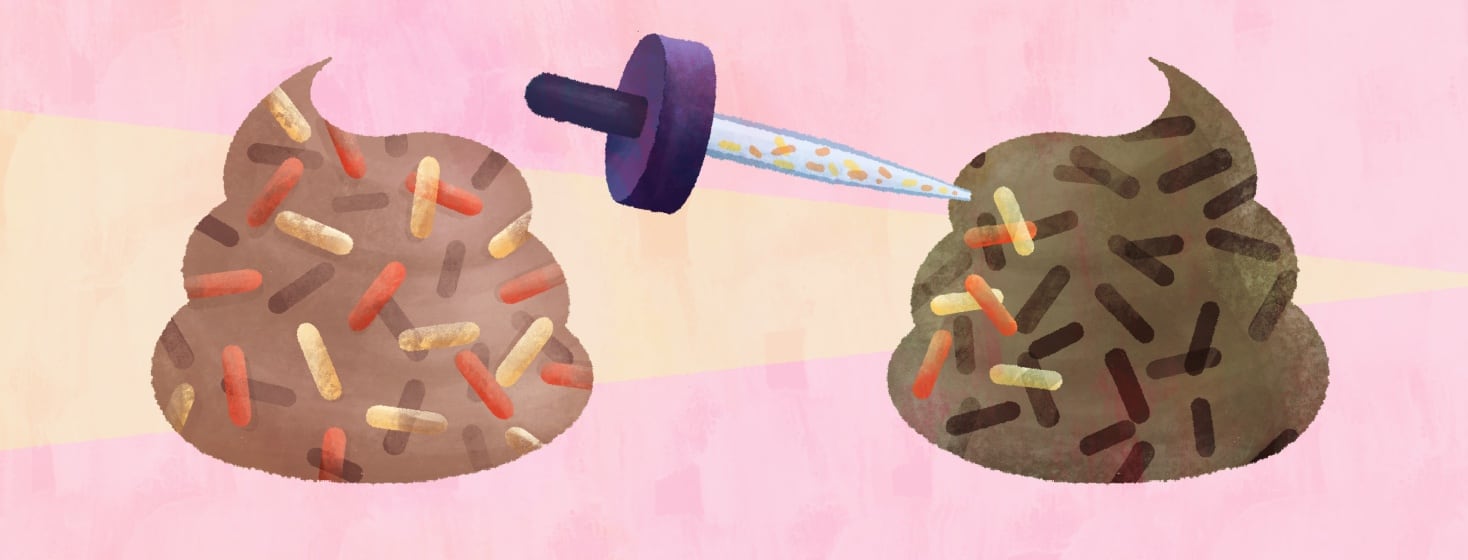What Is Fecal Transplantation for Ulcerative Colitis?
Fecal transplants, or fecal microbiota transplantation (FMT), is a type of treatment for many conditions. In FMT, healthy stool from a donor is transferred into the colon of an unwell recipient. It is most often used as treatment for a gut infection called C. diff. But FMT is being researched as a treatment for many GI issues, including ulcerative colitis (UC).1
What is a fecal transplant?
We all have trillions of different microorganisms in our guts. This is called the gut microbiome. Most of these microbes are helpful. For example, they can fight germs and prevent diseases. But in some people, these microorganism communities may not be healthy.1
A fecal transplant from a healthy donor can introduce more diversity to your gut microbiome. The thousands of helpful microbes repopulate your gut with a healthy community. People with UC tend to have less diverse gut microbiomes. FMT can address that and help manage UC.1,2
How do fecal transplants work?
The first step in FMT is the donor sample. Fecal transplants require a healthy donor for maximum success. This donor is thoroughly screened to ensure the transplant is safe. After the sample is donated, it is processed in a lab.1
There are several methods used for FMT, such as colonoscopies, endoscopies, or nasal tubes. As of 2023, the US Food and Drug Administration (FDA) has approved 2 FMT methods. These methods are an enema and an oral pill in a capsule form.1,2
An enema is a procedure given in a healthcare provider's office. Your doctor will use a small tube in the rectum to deliver the transplant. The FMT pills are capsulres that include the healthy bacteria from human waste. The pills can be taken at home over a 3-day period. You will need to prep beforehand by taking laxatives.1
What are the side effects of fecal transplants?
FMT can cause side effects that last a few days. These include:1
- Gas
- Nausea and vomiting
- Stomach pain
- Fever or chills
There is also a risk that the transplant could contain harmful germs. The samples are screened to prevent this, but there is still a small risk.1
How do fecal transplants treat ulcerative colitis?
Fecal transplants for UC are still being researched. But the studies that have been done show positive results. The existing research has shown that FMT can help people with UC achieve remission. There are factors that affect how likely remission is. These factors include the frequency and diversity of microbes in transplants. Taking antibiotics before the transplant also may increase the chance of remission.2
Because frequency of transplants impacts the chance of remission, FMT pills for UC are promising. Taking a pill is the least invasive and most convenient form of FMT. This form of FMT makes it easier for people to stick to a schedule. One study found that about 60 percent of the participants achieved UC remission after taking FMT pills. There were also no serious side effects.3
Other things to consider
As of 2023, the FDA has only approved FMT to treat C. diff. Since ongoing research shows positive results of using FMT to treat other conditions, it may eventually become a more common treatment for UC.1-3
There also are limits to using FMT as a large-scale treatment. For example, it can be hard to find enough donors that meet requirements. Processing and testing the samples can also be time-consuming.1,2
FMT is usually only used after other treatments have not been successful. But, if you are someone living with UC and are curious about FMT, speak with your gastroenterologist. They may be able to provide more information about FMT studies and therapy options that work for you.1,3

Join the conversation